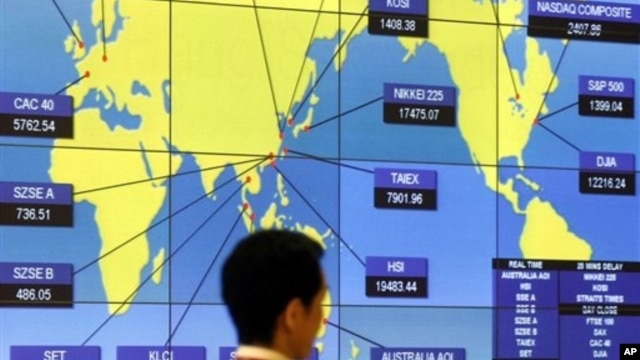
The Conference Board’s gauge of the outlook for the next three to six months climbed 0.1 percent after a revised 1 percent gain the prior month that was larger than previously estimated, the New York-based group said today. The median forecast of 46 economists surveyed by Bloomberg called for a rise of 0.2 percent.
Progress in the job market and rising equity prices and home values that are boosting wealth will underpin Americans’ confidence and sustain demand. Continued strength in consumer spending, which accounts for almost 70 percent of the economy, will in turn encourage businesses to invest and hire.
“It’s still consistent with a stronger economy in 2014,” Scott Anderson, chief economist at Bank of the West in San Francisco, said before the report. “We expect a healthier consumer, better business spending and somewhat faster job growth.”
Estimates in the Bloomberg survey ranged from a decrease of 0.1 percent to an increase of 0.6 percent.
Five of the 10 indicators in the leading index contributed to the increase, today’s report showed. They included stock price gains, the spread between short- and long-term interest rates and rising orders to manufacturers.
Weaker Components
Higher jobless claims, fewer building permits and weaker consumer confidence weighed on the results.
Another report today showed applications for unemployment benefits held near a six-week low, showing firings remain muted following the holidays. Jobless claims rose by 1,000 to 326,000 in the period ended Jan. 18, according to Labor Department data. The prior week’s 325,000 were the fewest since late November.
The Conference Board’s index of coincident indicators, a gauge of current economic activity, rose 0.2 percent after a 0.4 percent gain in the prior month.
The coincident index tracks payrolls, incomes, sales and production -- the measures used by the National Bureau of Economic Research to determine the beginning and end of U.S. recessions.
The gauge of lagging indicators increased 0.3 percent.
“This latest report suggests steady growth this spring, but some uncertainties remain,” Ken Goldstein, an economist at the Conference Board, said in a statement today. “Business caution and concern about unresolved federal budget battles persist, but the better-than-expected holiday season might point to sustained stronger demand and could put the U.S on a faster growth track for 2014.”
Fed Policy
The report helps explain why Federal Reserve officials in December decided to trim monthly bond purchases to $75 billion from $85 billion starting in January, taking the first step toward unwinding the unprecedented stimulus that was put in place to help spur economic growth.
Norfolk Southern Corp., the second-largest U.S. eastern railroad, is among businesses benefiting from the pickup in demand. The Norfolk, Virginia-based company this week reported fourth-quarter profit that exceeded analysts’ estimates as it hauled more chemicals, automobiles and agricultural products.
“Looking ahead, it certainly seems like the economy may be improving at a somewhat faster pace than we saw in 2013,” Chief Executive Officer Charles “Wick” Moorman said on an earnings conference call with analysts. “The outlook for most of our business segments is good.”
Nearly every U.S. city’s economy is projected to grow this year, including areas that struggled to rebound from the recession, according to data released this week by the U.S. Conference of Mayors. All but seven of 363 metropolitan areas will see economic gains, said the report prepared by IHS Global Insight, an economic analysis company. That would mark a shift from 2013, when about one-fourth contracted.
